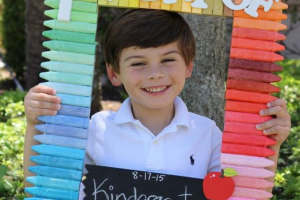 Opinion: When School Rewards Go Bad – Merit without Merit
Opinion: When School Rewards Go Bad – Merit without Merit
Retired teacher, mother and grandmother Deirdree Wallwork discusses the modern culture of behaviour incentives in school and ponders whether we’re rewarding the wrong things in today’s kids.
Don’t get me wrong. I firmly believe in rewarding good behaviour but as a mother, now grandmother and long serving teacher I am seeing a trend in schools I’d like us all to consider.
When I was at primary school, many moons ago, there was no positive reinforcement for good behaviour. Not getting struck with a hand (or the unfluffy end of a feather duster!) or receiving a ‘bellowing at’ was the reward for being good. Well-behaved children passed through the day almost unnoticed. And we well-behaved children liked it like that.
When my first child started school in the 1980’s I noticed certificates being handed out. At first I was gratified when my little cherub was a proud recipient but I later realised they were not awarded in a discriminatory manner – by the end of the year all the children had the same number of certificates to their name.
Now we come to the present where my granddaughter attends school. The rewards for good behaviour have reached unfathomed, stellar heights. The child’s reward begins with a token. Once they have achieved a certain number of tokens, they are graciously awarded a Silver Award at a Silver Award Assembly, (no less!) where all the child’s “fan club” (parents, grandparents etc) proudly watch as the cream of good behaviour line up to receive their badge and certificate.
I casually asked my grandchild, which of her fellow students had achieved the school’s Gold Award, the very pinnacle of best behaviour. Surprisingly it was not a child I would have ever picked. Certainly not for good behaviour anyway. The winner is a truly engaging and charming little boy but he’s a well-known attention seeker. (And by that I mean, polite speak for “naughty”)
So here is the conundrum.
When your main aim is to improve behaviour, the child who is already well behaved is often overlooked.
The naughty, or what I prefer to call the “spirited” child, starts playing the reward game. Naughty does not mean un-clever. Many of these children immediately identify that manipulating their behaviour (and thus their teacher) will result in attention and flattery.
The psyche of this child can often become “I get a certificate if I behave, so today that is what I will do. And tomorrow? I will return to my bad behaviour and then the teacher will notice it when I have a flash of good behaviour.” The spirited child will work the system, to think they can or will not is a huge under estimation of how bright today’s children are.
This behaviour then mirrors the culture of the bad old days of caning for discipline. For many boys of this era it became a competition to see who got belted the most. Just as with a certificate to encourage behaviour, this style of classroom discipline also became a game.
For me the worst outcome is that children soon start to see these rewards as valueless. Especially the well-behaved children who can be outrun by lesser-behaved children ‘playing the game’. A child I know summed it up recently when he came 3rd in his swimming carnival and received an award. His words “At least I really earned this one – and it means something”.
In closing, I am not blaming the teachers, I was a ‘chalkie’ myself and I know the challenges of inspiring, teaching and motivating 20-something children every day. And I’m not advocating when reintroduce the cane! But perhaps it’s time we re-examine the system. Maybe its time good behaviour became the expected, not the rewarded.


 Opinion: When School Rewards Go Bad – Merit without Merit
Opinion: When School Rewards Go Bad – Merit without Merit











